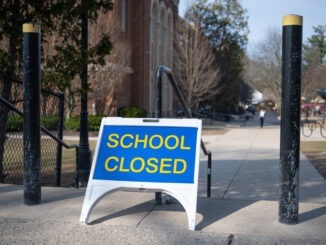As reported by NASUWT, amid increased demands due to the pandemic and cost of living pressures, NASUWT warns that without additional investment, Scottish schools will struggle to meet educational needs
The residual impacts of the pandemic on pupils’ learning, development, behaviour and mental health have been compounded by the cost of living crisis, leaving schools being expected to do much more to meet pupils’ needs without a corresponding increase in funding or resources to match.
With cuts to teaching numbers being mooted by some local councils, the Union has warned that the pressures on schools are likely to intensify without additional investment.
The Union has put forward a motion to STUC Congress in Dundee today calling for an increase in funding levels for education and an open and transparent national conversation around the ability to reform local council taxes and the use of new wealth taxes to generate additional money for education.
Dr Patrick Roach, NASUWT General Secretary, said:
“The challenges and expectations facing schools have changed rapidly, not least due to the impact of the pandemic and the cost of living crisis. However, funding and resourcing has failed to keep up, leaving schools struggling to meet the increased needs of pupils.
“Children are being let down by the failure to properly fund education and post-pandemic recovery strategy.
“There can be no justification for threatening the loss of jobs whilst education and vital support for children, young people and families are at breaking point.”
Mike Corbett, NASUWT National Official Scotland, said:
“Children only get once chance at an education and if we want every child to be taught by the best qualified and most highly skilled and motivated teaching workforce, this takes investment.
“We currently see teaching jobs being threatened in Glasgow as a result of a funding shortfall. Fewer teachers are bad for children’s education and cutting teacher numbers will only make an already difficult situation in schools even worse.
“We need to work collectively to consider how our schools are being funded and come up with solutions to better ensure our education system has the funding and resources needed to meet the ongoing challenges being faced in classrooms up and down the country.”




Be the first to comment